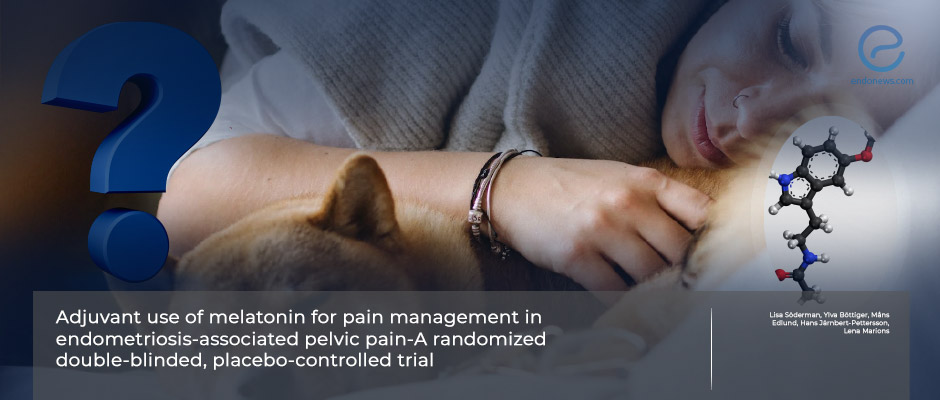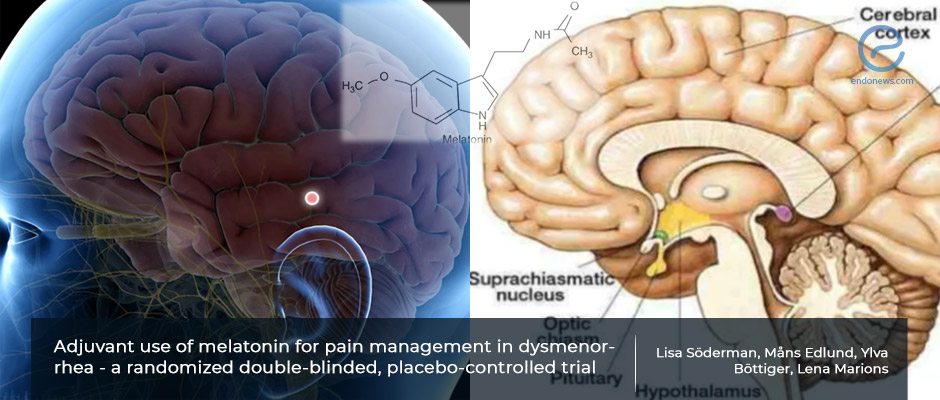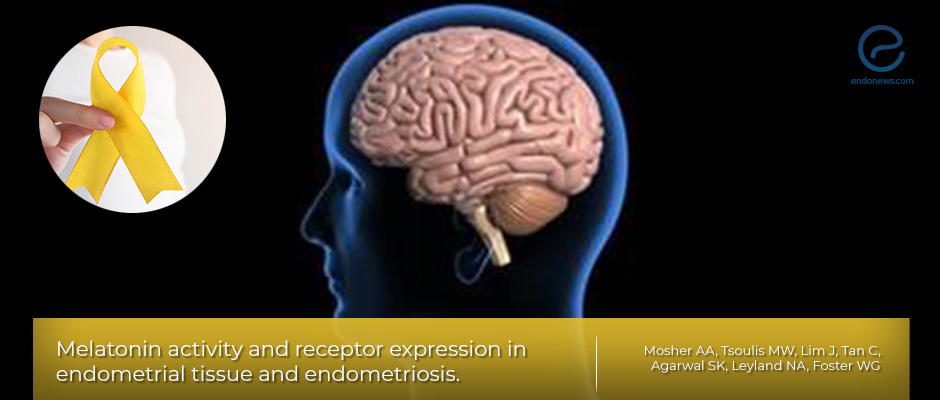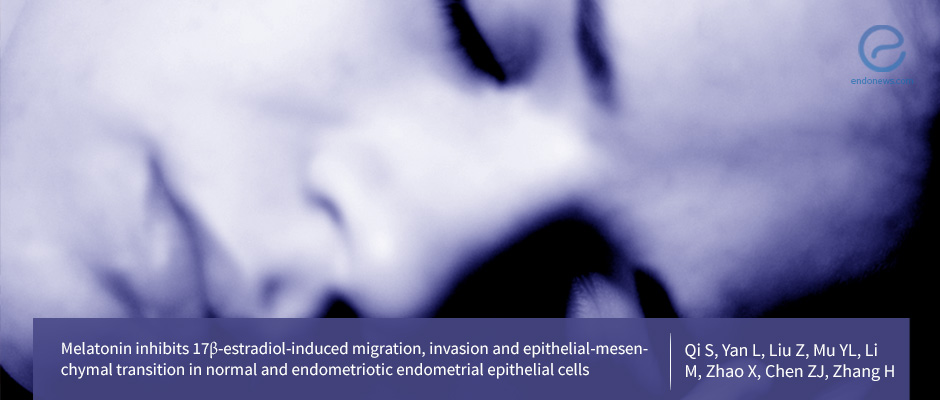Melatonin for endometriosis-associated pain
Treatment options for endometriosis-associated pain include analgesics, hormonal therapy, and surgery. However, these treatments may be ineffective for some women, leading to a search for alternative approaches. Melatonin, a hormone involved in regulating sleep-wake cycles, possesses anti-inflammatory, analgesic, and anti-estrogenic…
Key Points Lay SummaryA trial of exogenous melatonin on dysmenorrhea in women "without endometriosis"
In their recent article published in “European Journal of Clinical Pharmacology”, Dr. Söderman and associates from Stockholm report the results of their randomized, double-blind, placebo-controlled trial on the effects of oral melatonin in women with dysmenorrhea -unrelated to endometriosis-. Melatonin is a hormone…
Key Points Lay SummaryMelatonin receptors and their role in endometrial cell proliferation
Women with endometriosis demand therapy for the most common symptoms, which are pelvic pain and infertility. Despite extensive research, the exact pathophysiological mechanism and the optimal management of endometriosis still remains unclear. Management of endometriosis should aim to relieve pain,…
Key Points Lay SummaryCould the Sleep Hormone Treat Endometriosis?
Melatonin blocks cell proliferation, invasion, and migration in both normal and endometriotic epithelial cells, according to a study published in the scientific journal Reproductive Biology and Endocrinology. Melatonin could, therefore, be a potential treatment for endometriosis The formation and progression…
Key Points Lay SummaryRoles of melatonin in endometriosis
Melatonin is a neurohormone synthesized mainly by the pineal gland of mammals. It is controlled by the endogenous circadian clock located in brain hypothalamus. Melatonin is regulated by environmental light where the concentrations are low during the daytime and high…
Key Points Lay Summary
 By Eylül GÜN
By Eylül GÜN

 By Nasuhi Engin Aydin
By Nasuhi Engin Aydin

 By Hale Goksever Celik
By Hale Goksever Celik

 By Özge Özkaya
By Özge Özkaya

 By Yu Yu
By Yu Yu